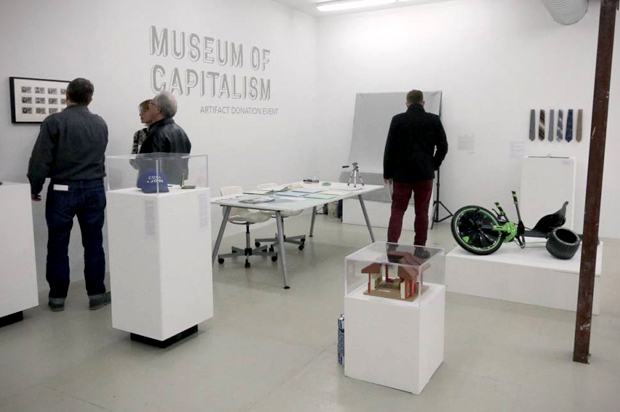As coronavirus shut down everyday life over the last month, museums all around the world closed their doors. From the Louvre in Paris to the Met museum in New York, exhibits usually brimming with people are now empty, save for the occasional security guard. Many of them, uncertain when or whether they’ll reopen, have revived an older art — helping their local communities in a time of crisis.
The number of confirmed COVID-19 cases in the United States has surged to the highest in the world, and museums, science centers, and galleries have responded by donating gloves, masks, and respirators to health workers facing severe shortages of protective equipment. Many galleries have these critical supplies laying around in their reserves for installing artwork, a process sometimes covered in dust and debris.
The Museum of Modern Art has donated 300 N-95 masks and some 3,000 nitrile gloves often used in medical settings to hospitals in New York City that were strapped for equipment. The Dallas Museum of Art, the Pacific Science Center in Seattle, the Tennessee State Museum, and dozens more have donated similar protective gear. The Franklin Institute, a science museum in Philadelphia, is using 3-D printers to make additional face shields.
It’s a moment of reckoning for museums, which are quickly realizing that their operations might not return to normal after the pandemic subsides.
The museum world will be “forever shaken to the core” by COVID-19, said Micah Parzen, the CEO of the San Diego Museum of Man, a cultural anthropology museum. “All of this pain and suffering will force us all to ask very difficult questions about who we are as museums and what role we are really playing in the community, and for whom,” he said.
Coming to the aid of their neighbors — whether it’s during the current coronavirus crisis or a future climate disaster — is, in fact, central to museums’ missions. The American Alliance of Museums Code of Ethics, after all, states that “public service is paramount.”
Some museums are repurposing their land and facilities to help their surrounding towns deal with the pandemic. Colonial Williamsburg in Virginia is offering buildings as emergency care facilities for the city and public health officials. Old Salem Museums & Gardens in North Carolina is transforming all of its gardens into World War II-style “victory gardens” to provide fresh produce for local food banks. And the Baltimore Museum of Industry in Maryland has turned its empty parking lot into a coronavirus testing center with the local nonprofit MedStar Health.
Their responses serve as a template for how museums could come to their neighbors’ aid during disasters worsened by climate change, like floods, wildfires, heat waves, and hurricanes, said Sarah Sutton, who leads the museum sector for We Are Still In, the group of cities, states, tribes, businesses, and other groups trying to uphold the Paris climate agreement.
“It’s as if we’re testing out and exercising these muscles of working across sectors and actively pursuing the greater good, in a way that we already know we need to do for climate change,” Sutton said.
So how could museums prepare for climate disasters? Their large parking lots could serve as a staging area for firefighters, as the Getty Center did during the Getty Fire in Los Angeles last fall. Sutton imagines that museums could collect backpacks full of emergency supplies to give away when a flood or fire is heading toward town.
In recent years, museums have started to look beyond protecting and showcasing their irreplaceable collections and turn to confronting problems faced by their neighbors. Art museums, history museums, zoos, aquariums, and science centers are some of the most trusted organizations in the U.S., with surveys showing that people have more faith in them than in newspapers, nonprofits, or state and federal governments. When disaster strikes, Sutton said, people need the help of institutions they can trust.
“We’ve been trying to think in new ways to figure out how we can be a better community partner, other than just being a place where we have exhibitions and programs,” said Jerry Foust, director of the Dumbarton House, a historic site in Washington, D.C. The museum recently offered a building and parking lot for COVID-19 needs, in addition to helping organize a donation drive for gloves and masks.
Many museums are looking back to the 1940s for inspiration. The Dumbarton House handed over part of its property to the Red Cross during World War II, and the San Diego Museum of Man was converted into a hospital to care for the sick and wounded. “It was a moment where the community needed something very different from what the museum had previously offered, so we pivoted in that respect,” Parzen said.
In March, the San Diego Museum of Man realized that it was time to pivot for COVID-19 and put out a call asking for ideas about how it could help. The response was enthusiastic, Parzen said, and now the museum is looking into all sorts of possibilities — becoming a food distribution site, a homeless resource center, or a manufacturing site for protective equipment.
When a disaster comes to town, the museums that already know their neighbors — and what they need — will be able to respond the best, Sutton said. She’s keeping track of the dozens of organizations that have mobilized to take on COVID-19, and says it’s probably not a coincidence that smaller institutions make up the bulk of the list.
“They’re really connected with community conversations and community needs, and they’re actively listening for how they could play a role,” Sutton said. “And they’re ready to step in when it happens.”


